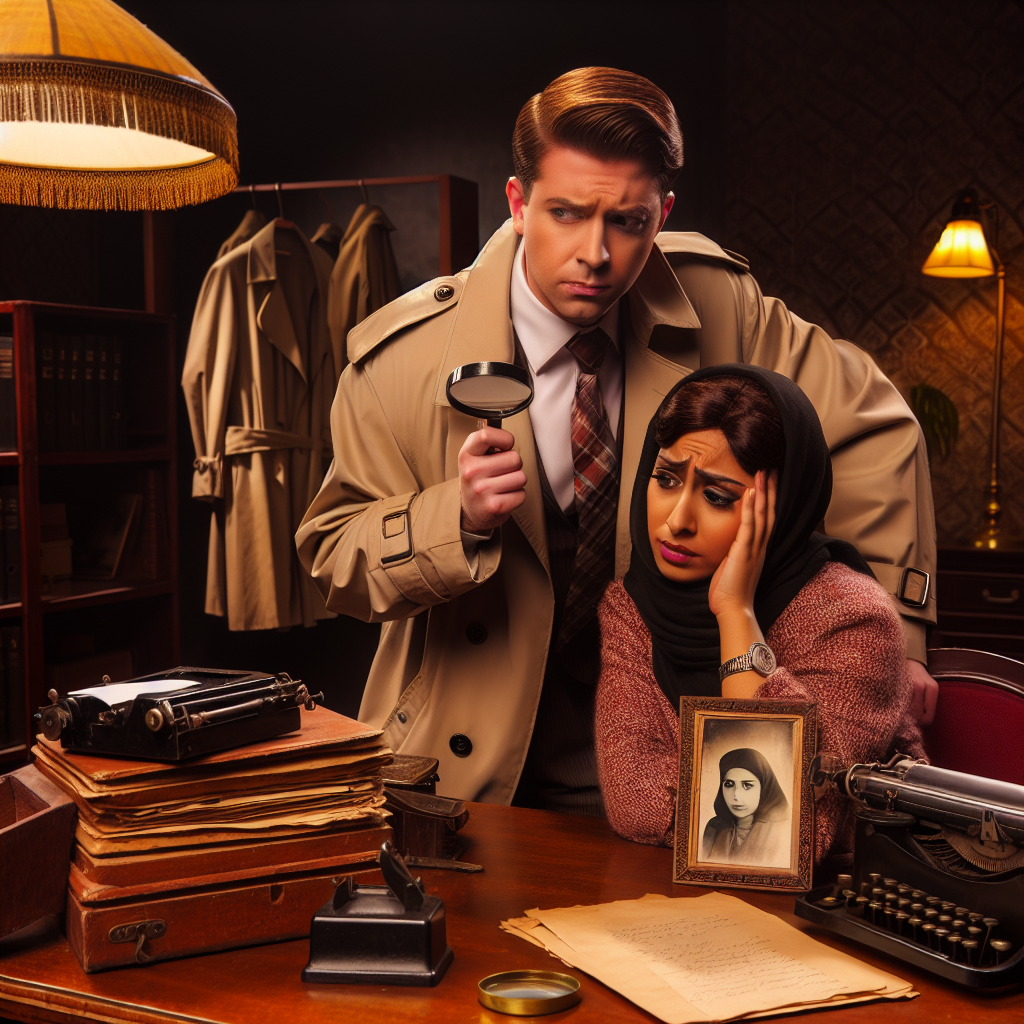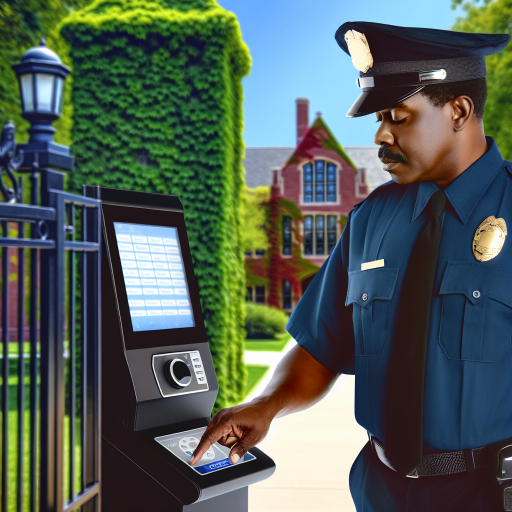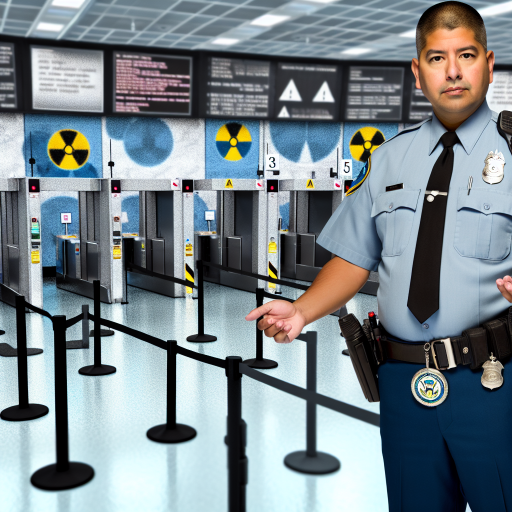Introduction
Communication skills are crucial for private investigators to effectively gather information and build relationships with clients.
The ability to articulate findings and ask probing questions plays a vital role in investigative work.
Effective communication can make or break a case, influencing its outcome and ultimately determining the success of a private investigator.
Building Rapport as a Private Investigator
Building rapport is a critical aspect of being a successful private investigator.
Establishing trust and communication with clients, witnesses, and other individuals involved in a case can significantly impact the outcome of an investigation.
Here are some key reasons why building rapport is essential for private investigators:
- Establishing Trust:
- Gathering Valuable Information:
- Developing Relationships:
- Enhancing Credibility:
- Improving Collaboration:
1. Establishing Trust:
Building rapport with clients, witnesses, and other individuals involved in a case is crucial for gaining their trust.
Trust is the foundation of any successful investigation.
Without trust, individuals may be hesitant to share important information or cooperate fully with the investigation.
2. Gathering Valuable Information:
Effective communication skills can help private investigators gather valuable information that is essential for solving a case.
By building rapport with individuals, investigators can create a comfortable and open environment.
People are more willing to share key details and insights.
3. Developing Relationships:
Building rapport goes beyond just gathering information – it is about developing relationships.
Strong relationships can lead to repeat business, referrals, and a positive reputation in the industry.
4. Enhancing Credibility:
Establishing rapport and maintaining open lines of communication can enhance a private investigator’s credibility.
Clients and other stakeholders are more likely to trust an investigator who demonstrates professionalism, empathy, and integrity in their interactions.
Transform Your Career Today
Unlock a personalized career strategy that drives real results. Get tailored advice and a roadmap designed just for you.
Start Now5. Improving Collaboration:
Effective communication skills can also improve collaboration between private investigators and other professionals involved in a case.
These professionals include law enforcement officers, attorneys, and experts in various fields.
Building rapport with these individuals can lead to a more coordinated and successful investigation.
By prioritizing the importance of building rapport, private investigators can increase their chances of success in solving cases.
They can also deliver results for their clients.
Importance of Clear and Concise Reporting
Clear and concise reporting ensures that all details of the investigation are accurately documented.
It helps in organizing information in a logical manner for easy reference.
Well-written reports provide a comprehensive overview of the case, aiding in decision-making.
It serves as a record of all the actions taken during the investigation process.
Clear reporting prevents miscommunication and misunderstandings among team members.
Essential Role of Communication Skills
Strong communication skills are crucial for writing detailed and accurate reports.
Investigators must be able to convey complex information in a clear and understandable manner.
Effective communication ensures that the report is structured, coherent, and easy to follow.
It helps in presenting findings in a compelling way that can be used in legal proceedings.
Communication skills also play a vital role in collaborating with clients, attorneys, and law enforcement.
Ensuring Accuracy and Legitimacy
Clear and concise reporting contributes to the accuracy and legitimacy of the investigation.
Reports serve as evidence in court, so accuracy and honesty are paramount.
Well-documented reports help in building a solid case and supporting investigative findings.
Investigators need to present information in a transparent and impartial manner.
Transform Your Career Today
Unlock a personalized career strategy that drives real results. Get tailored advice and a roadmap designed just for you.
Start NowCommunication skills are key in ensuring that reports are not only accurate but also credible.
You Might Also Like: Correctional Officer Job Fair Tips
Effective Interviewing Techniques
Effective interviewing techniques are crucial for private investigators.
They play a significant role in gathering information from suspects, witnesses, and other parties involved in a case.
Role of Communication Skills
- Communication skills are essential in establishing rapport with interviewees.
- They help in building trust and credibility during the interview process.
- Effective communication can help in extracting valuable information from interviewees.
- It aids in deciphering body language and non-verbal cues during interviews.
- Communication skills are vital in creating a comfortable and open environment for interviews.
Tips for Using Active Listening and Questioning Techniques
- Practice active listening by giving full attention to the interviewee without interruptions.
- Use open-ended questions to encourage detailed responses from the interviewee.
- Avoid leading questions that may influence the responses of the interviewee.
- Clarify any ambiguous information by asking follow-up questions.
- Employ empathy and understanding to establish a connection with the interviewee.
- Allow the interviewee to speak freely without rushing or interrupting them.
- Take notes during the interview to ensure accurate and detailed documentation of information.
- Observe the body language and facial expressions of the interviewee for additional insights.
- Respect the privacy and confidentiality of the information shared during the interview.
- Follow up with additional questions or interviews as needed to gather more information.
By utilizing effective communication skills, private investigators can conduct interviews with suspects, witnesses, and other parties in a professional and efficient manner.
This leads to successful case outcomes.
Delve into the Subject: Women in Bodyguarding: Breaking the Stereotypes
Collaborating with Law Enforcement
Effective communication with law enforcement agencies is crucial for private investigators to successfully solve cases.
Collaboration with police and other authorities can provide valuable resources, expertise, and support in investigations.
Importance of Effective Communication
- Shared information: Communication helps in sharing crucial data and evidence with law enforcement, leading to a more comprehensive investigation process.
- Legal implications: Collaboration ensures that all actions taken align with legal protocols and standards, reducing the risk of procedural errors.
- Access to resources: Law enforcement agencies have access to advanced tools, databases, and technologies that can aid private investigators in gathering information and evidence.
- Expertise and experience: Working with police allows private investigators to benefit from the specialized skills and knowledge of law enforcement professionals, enhancing the investigation’s effectiveness.
Enhancing Communication Skills
- Active listening: Private investigators should practice active listening to understand law enforcement requirements and effectively communicate their needs.
- Clear and concise: Communication should be clear, concise, and free from ambiguity to ensure that all parties involved are on the same page.
- Professionalism: Maintaining a professional demeanor while interacting with law enforcement agencies enhances credibility and fosters trust in the collaboration process.
- Regular updates: Providing regular updates on the investigation’s progress and sharing relevant information with authorities strengthens the partnership and promotes transparency.
By honing their communication skills and fostering strong relationships with law enforcement, private investigators can navigate complex cases more effectively and achieve successful outcomes for their clients.
Uncover the Details: How DEA Agents Handle Undercover Operations

Building a Strong Professional Reputation
Good communication skills play a crucial role in helping private investigators establish and maintain a strong professional reputation.
By effectively conveying information, private investigators can earn the trust and respect of their clients and peers.
- Clear Communication
- Assertive Communication
- Enhancing Credibility
- Attracting More Clients
- Establishing Trust
Clear and concise communication is essential in the field of private investigation.
Being able to articulate information accurately and effectively can make a significant difference in how a case is perceived and handled.
Assertive communication is also key for private investigators.
They must be able to assert themselves confidently while interacting with clients, witnesses, and other individuals involved in a case.
This helps to convey professionalism and competence.
By demonstrating strong communication skills, private investigators can enhance their credibility and reputation in the industry.
Clients are more likely to trust investigators who can clearly and confidently communicate their findings and recommendations.
Transform Your Career Today
Unlock a personalized career strategy that drives real results. Get tailored advice and a roadmap designed just for you.
Start NowWhen private investigators have a reputation for being effective communicators, they are more likely to attract new clients to their investigative services.
Word of mouth travels fast, and clients are more inclined to hire investigators who are known for their clear and assertive communication.
Effective communication is fundamental in building trust with clients.
Private investigators who communicate openly and honestly with their clients create a strong foundation of trust, which is essential for successful investigative work.
Good communication skills are vital for private investigators looking to build and maintain a strong professional reputation.
By focusing on clear, assertive communication, investigators can enhance their credibility, attract more clients, and establish trust with those they work with.
Communication is a powerful tool in the world of private investigation, and honing these skills can lead to greater success in the field.
Discover More: Correctional Officer Communication Skills
Handling Difficult Conversations
Communication skills are crucial when it comes to handling difficult conversations or confrontations during investigations.
Private investigators often find themselves in challenging situations where conflicts may arise, and the ability to communicate effectively is essential in resolving these issues.
Importance of Communication Skills
- Prevents misunderstandings: Clear communication helps avoid misinterpretations that can lead to conflicts.
- Builds rapport: Good communication fosters trust and credibility with clients and stakeholders.
- Resolves conflicts: Effective communication can help de-escalate tense situations and find solutions.
- Gathers accurate information: By asking the right questions and listening actively, investigators can obtain crucial details.
- Preserves professionalism: Maintaining a calm demeanor and using respectful language is key in challenging conversations.
Strategies for De-Escalating Conflicts
Private investigators can implement various strategies to handle difficult conversations tactfully and maintain professionalism:
- Active listening: Paying attention to the speaker shows respect and can help defuse conflicts.
- Stay calm: Avoid escalating the situation by maintaining a composed and professional demeanor.
- Choose words carefully: Use neutral language and avoid inflammatory or accusatory statements.
- Empathize: Acknowledge the other party’s feelings and show understanding to build rapport.
- Seek common ground: Find areas of agreement to bridge differences and ease tensions.
Effective communication skills play a vital role in a private investigator’s ability to handle difficult conversations and confrontations during investigations.
By practicing active listening, maintaining professionalism, and employing conflict resolution strategies, investigators can navigate challenging situations with success.
Importance of Communication Skills for Private Investigators
Communicating effectively is vital in gathering information during investigations.
An investigator must be able to interview witnesses and suspects.
Clear communication can help build trust with clients and law enforcement.
Interacting with various people requires strong verbal and written skills.
Active listening is crucial to understanding the details of a case.
Nonverbal cues can provide valuable insights during interviews.
Writing reports and documenting findings accurately is essential for a successful investigation.
Transform Your Career Today
Unlock a personalized career strategy that drives real results. Get tailored advice and a roadmap designed just for you.
Start NowProfessional communication can enhance the reputation and credibility of a private investigator.
Enhancing Communication Abilities
Enhancing communication abilities will lead to more successful investigations.
Investing in communication training is key to excel in investigative work.
Prioritizing the improvement of communication skills is crucial for a successful career in the field of private investigation.




